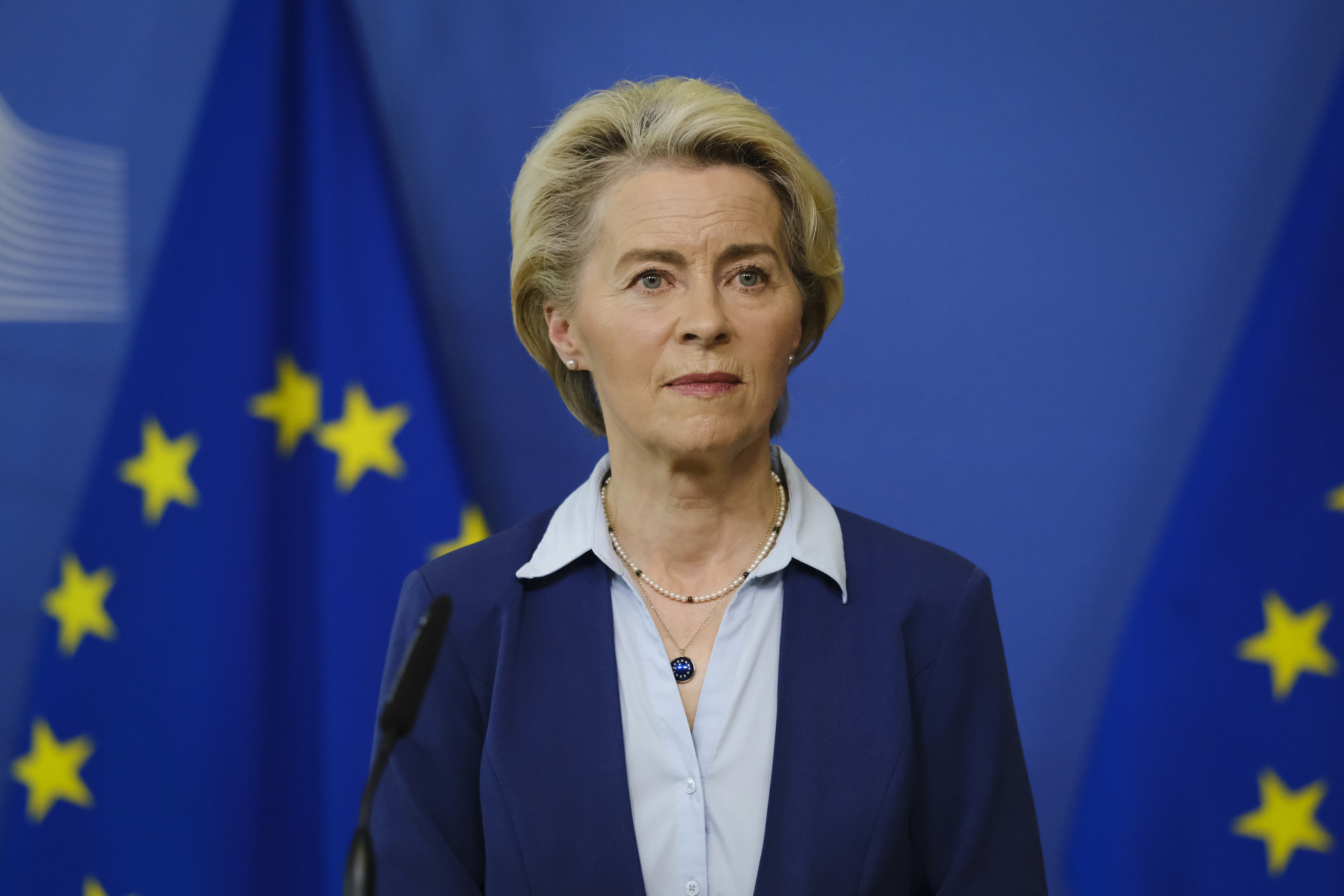
Ursula von der Leyen is a prominent figure in European politics, known for her remarkable career and contributions to the European Union (EU). Born on October 8, 1958, in Brussels, Belgium, she hails from a family deeply rooted in politics and diplomacy. Over the years, she has risen through the ranks, showcasing her leadership skills and dedication to building a united Europe.
Ursula von der Leyen’s early life was marked by a strong commitment to public service. She was born into a family of diplomats; her father, Ernst Albrecht, served as a senior official in the European Commission and later became the Prime Minister of Lower Saxony in Germany.
She studied economics at the Universities of Göttingen and Münster as well as at the London School of Economics but never graduated. Instead, she went into medicine and graduated from Hanover Medical School (MHH), Germany. She worked as an assistant physician at the MHH’s gynecological clinic and in 1991 was awarded a doctorate in medicine.
Ursula von der Leyen, joined the Christian Democratic Union (CDU) in 1990, became actively engaged in Lower Saxony’s politics in 1996, a federal state her father had previously governed from 1976 to 1990. She held various local and state positions before being elected as a member of the CDU’s leadership committee in 2004. Following CDU’s victory in the 2005 federal elections, she was appointed as the Minister of Family Affairs, Senior Citizens, Women, and Youth in Chancellor Angela Merkel’s inaugural cabinet. Notable among von der Leyen’s initiatives to combat Germany’s declining birth rate were the introduction of paid parental leave after childbirth and a substantial expansion of childcare facilities.
In 2009, she secured a seat in the Bundestag (parliament) and assumed the role of Minister of Labour and Social Affairs. During her tenure, the ongoing financial crisis necessitated tough decisions, including reductions in welfare spending. Her strong leadership abilities and dedication to her portfolio helped her solidify her reputation as a skilled and compassionate policymaker. Toward the end of 2010, von der Leyen was elected as the deputy chairman of the CDU.
In December 2013, Ursula von der Leyen, who was considered by some as a potential successor to Chancellor Merkel, made history by becoming the first woman to serve as the Minister of Defense in Germany. During her tenure in this role, she embarked on an ambitious agenda to modernize and reform the Bundeswehr, the federal armed forces, all while navigating a series of complex challenges.
In 2019, Ursula von der Leyen reached the pinnacle of her political career when she was nominated by the European Council to become the President of the European Commission, the EU’s executive branch. Her appointment was historic, as she became the first woman to hold this prestigious position.
Von der Leyen took office amidst a challenging period for the EU, dealing with complex issues like Brexit, the migration crisis, and climate change. However, her leadership style was characterized by pragmatism and a commitment to unity. She played a pivotal role in brokering the EU Recovery Fund, which aimed to support member states’ economic recovery in the wake of the COVID-19 pandemic. Additionally, she made climate action a central focus of her presidency, advocating for the ambitious European Green Deal.
Von der Leyen, who put climate issues at the center of her presidency, set a new and ambitious course towards a greener, more digital and fairer European Union and described the “European Green Deal” as Europe’s “new growth strategy.”
“We do not have all the answers yet, today is the start of a journey, but this is Europe’s man on the moon moment. The European Green Deal is very ambitious, but it will also be very careful in assessing the impact and every single step we’re taking.”
Von der Leyen said an economic growth plan based on fossil fuels and pollution was “out of date and out of touch.”
“The European Green deal is on one hand about cutting emissions, but on the other hand, about creating jobs and boosting innovation.” She said.
Under Ursula von der Leyen’s leadership, the European Union has witnessed a strong commitment to advancing gender equality through a range of policies and initiatives.
The strategies outlines specific policy objectives and measures aimed at achieving substantial advancements in the direction of gender equality in Europe by 2025. The ultimate vision is to create a Union where individuals of all genders, encompassing women and men, girls and boys, irrespective of their diverse backgrounds, have the liberty to pursue their desired life paths. This entails ensuring equal opportunities for success and fostering the ability for everyone to participate in and take leadership roles in European society on an equitable basis.
Ursula von der Leyen’s legacy as President of the European Commission will undoubtedly be defined by her tireless efforts to strengthen the European Union. Her dedication to gender equality, climate action, and economic recovery will leave a lasting impact on the continent.
Her tenure has also emphasized the importance of unity among EU member states, especially in times of crisis. Her leadership during the COVID-19 pandemic demonstrated the EU’s ability to come together and support one another during challenging times.
Ursula von der Leyen’s life and career have been marked by a relentless commitment to public service and a passion for building a stronger, more united Europe. From her early days in German politics to her historic appointment as President of the European Commission, she has consistently demonstrated leadership, vision, and an unwavering dedication to the values of the European Union. As she continues to navigate the complex challenges facing the EU, Ursula von der Leyen remains a trailblazer in European politics.










